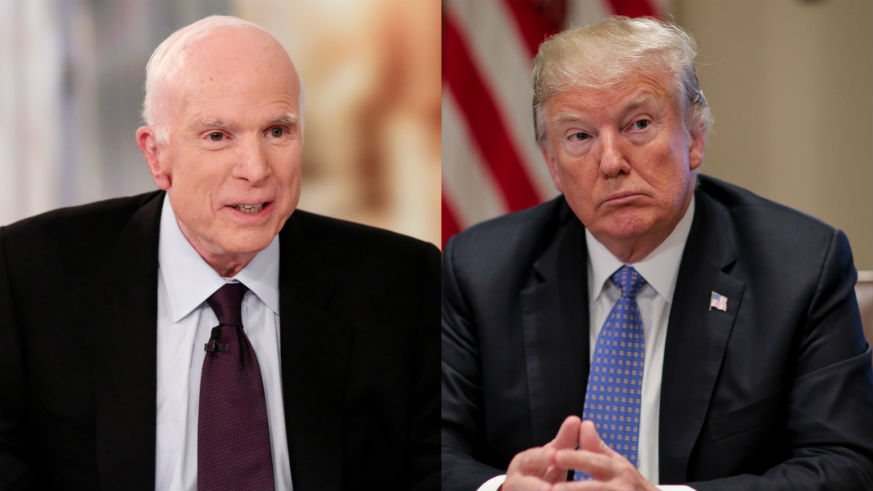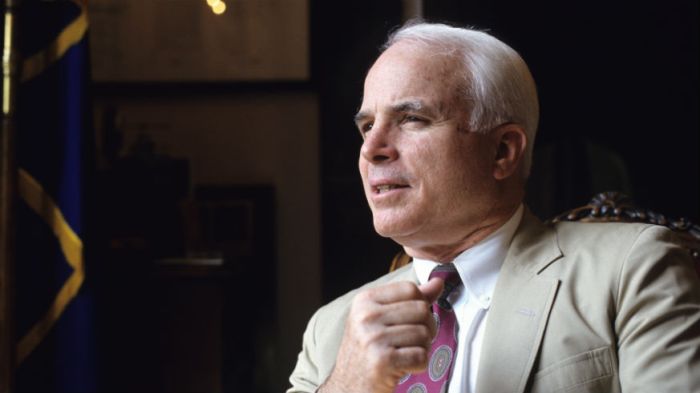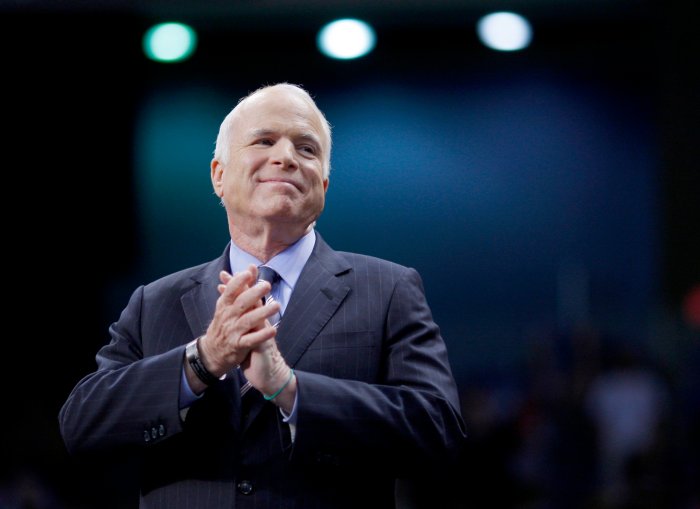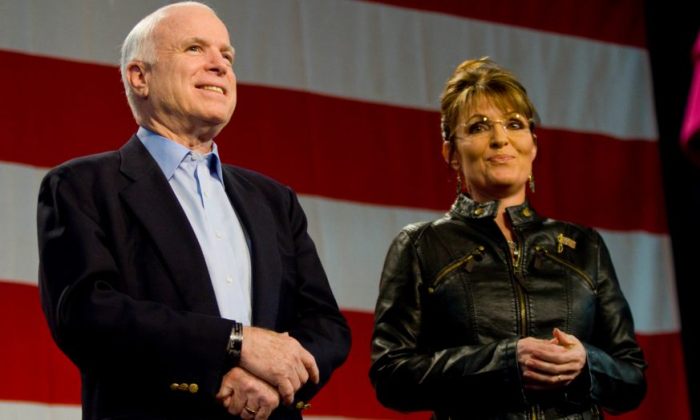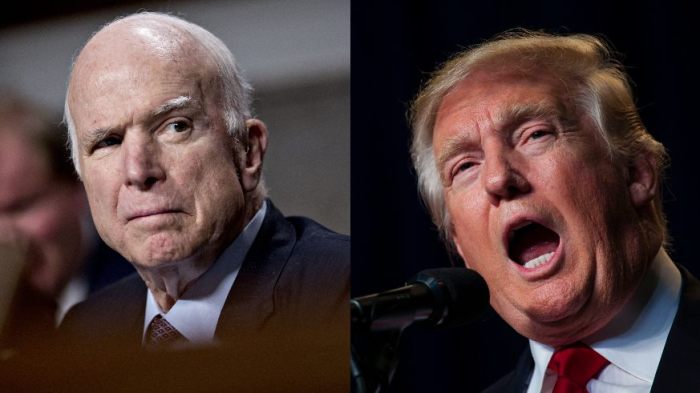Updated August 27, 2018 4:15 p.m.: Two days after Sen. John McCain passed away from glioblastoma, President Trump finally released an official statement.
The White House just released a statement from Trump on John McCain pic.twitter.com/tD880jDAkz
— Jason Leopold (@JasonLeopold) August 27, 2018
This came after backlash over Trump’s initial message — a brief, 21-word tweet — on the day McCain died. He still refrained from calling McCain a war hero.
Originally Posted August 27, 2018 12:00 p.m.: Sen. John McCain died at 81 after a strenuous battle with glioblastoma. The aggressive form of brain cancer was discovered in July 2017, and McCain was reportedly taken off treatment the day before he passed. A statement from Trump on McCain was issued via Twitter once news broke.
Trump tweeted (and Instagrammed) the following message about the Arizona senator on Saturday: “My deepest sympathies and respect go out to the family of Senator John McCain. Our hearts and prayers are with you!”
“It’s atrocious,” Mark Corallo, former spokesman for the president’s legal team, said of Trump’s message. “At a time like this, you would expect more of an American president when you’re talking about the passing of a true American hero.”
Others said that, in terms of a statement from Trump on McCain, they weren’t expecting anything heavy with praise.
John Weaver, a longtime friend and advisor to McCain, said, “It certainly doesn’t bother me or the people I know close to John.”
“I don’t think it bothers John one bit,” Weaver continued. “If we heard something today or tomorrow from Trump, we know it’d mean less than a degree from Trump University.”
Though her husband avoided recognizing McCain for his service, Melania wrote the following:
Our thoughts, prayers and deepest sympathy to the McCain Family. Thank you Senator McCain for your service to the nation.
— Melania Trump (@FLOTUS) August 26, 2018
Trump on McCain: Why did he scrap an official statement?
According to the Washington Post, an official statement praising McCain’s heroism was drafted before he died. It was edited this past weekend upon McCain’s death — but when press secretary Sarah Huckabee Sanders, chief of staff John F. Kelly and other senior White House aides advocated for its release, Trump said he’d rather stick to a brief Twitter post instead.
The planned statement from Trump on McCain and his heroism was not used.
McCain’s congressional colleagues and personal allies — as well as his adversaries — issued statements of their own.
Obama shared a message on behalf of his family, writing of the Republican senator, “John McCain and I were members of different generations, game from completely different backgrounds, and competed at the highest level of politics. But we shared, for all our differences, a fidelity to something higher — the ideals for which generations of Americans and immigrants alike have fought, marched, and sacrificed.”
He continued on to say, “Few of us have been tested the way John once was, or required to show the kind of courage that he did. But all of us can aspire to the courage to put the greater good above our own. At John’s best, he showed us what that means.”
Our statement on the passing of Senator John McCain: pic.twitter.com/3GBjNYxoj5
— Barack Obama (@BarackObama) August 26, 2018
Trump and McCain: A combative history
McCain survived over five years in a Vietnam War prison camp, for which he received a Silver Star. Despite Trump’s talk of patriotism, he has never truly called McCain a war hero.
Back in 2015, Trump proclaimed, “[McCain]’s not a war hero. He’s a war hero because he was captured. I like people that weren’t captured.”
That same year, McCain said he would not support Trump’s run for office, and that Trump’s candidacy “fired up the crazies.”
At the time of the infamous Access Hollywood tape leak — which recorded Trump boasting about grabbing women “by the p***y” — McCain said, “It’s not pleasant for me to renounce the nominee of our party. He won the nomination fair and square. But this is — I have daughters. I have friends. I have so many wonderful people on my staff. They cannot be degraded and demeaned in that fashion.”
Once Trump took office, the two showcased a very public combative relationship on policy — McCain has denounced Trump’s resilient attack on the media and his views on foreign and domestic policy specifically, while Trump reportedly told friends he felt betrayed by McCain in the political field.
McCain was a longtime advocate of immigration reform and, this year, even voted against the Republican-backed bill repealing Obamacare. McCain’s vote was one of three needed to halt the overhaul in its tracks. Not to mention, McCain wrote an August 2017 op-ed condemning the president for having “no experience of public office” and being “often poorly informed” and “impulsive in his speech and conduct.”
Trump on McCain, and vice versa, has gone like this throughout the years:
Click through to McCain’s official website for information on memorials and services happening soon.
Obama and George W. Bush will be giving eulogies at McCain’s funeral. Trump was reportedly asked not to attend.

